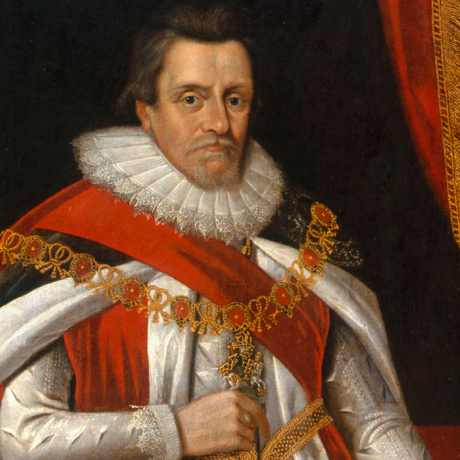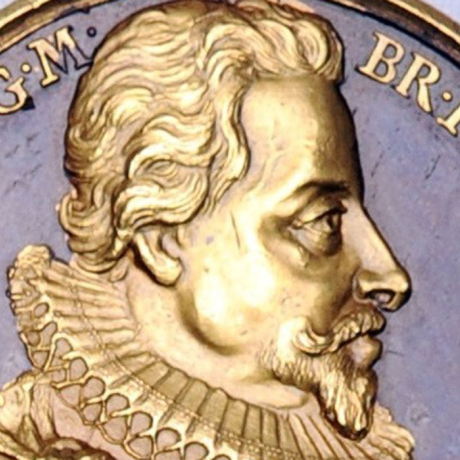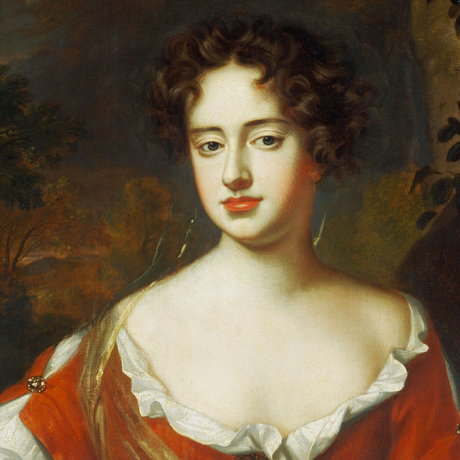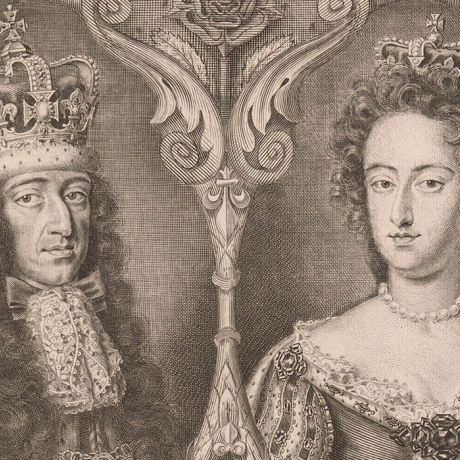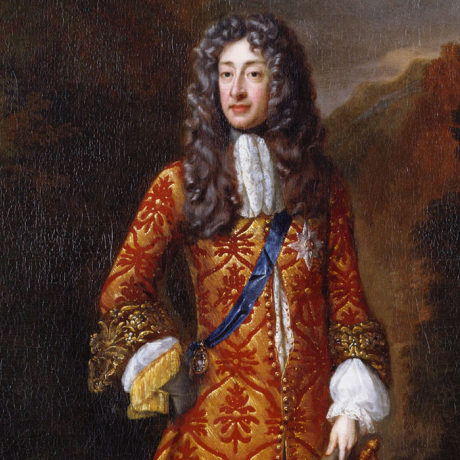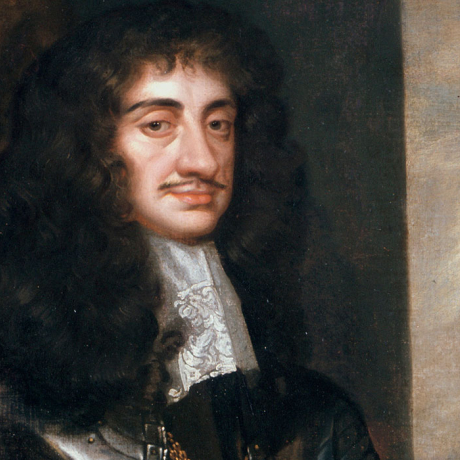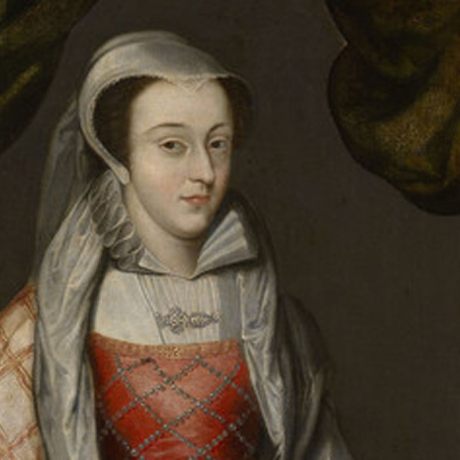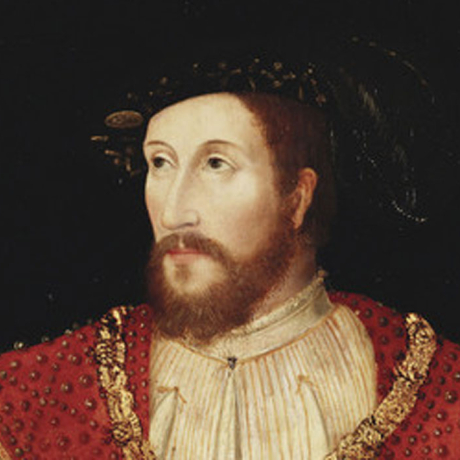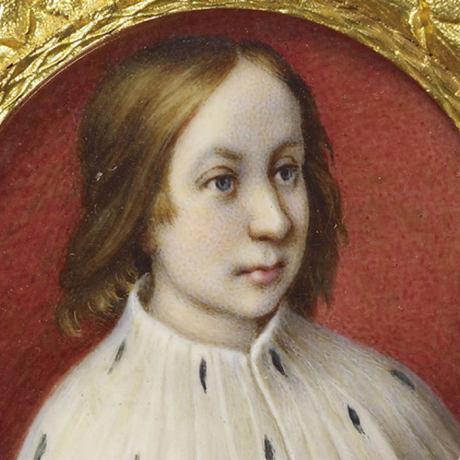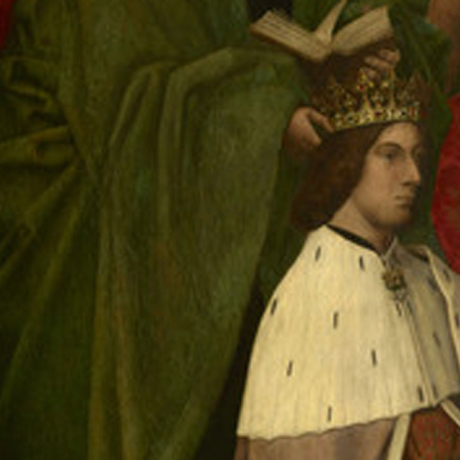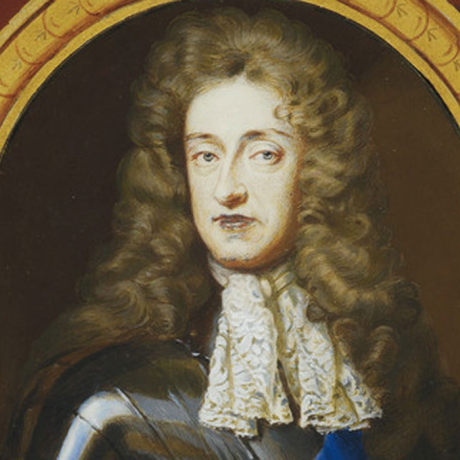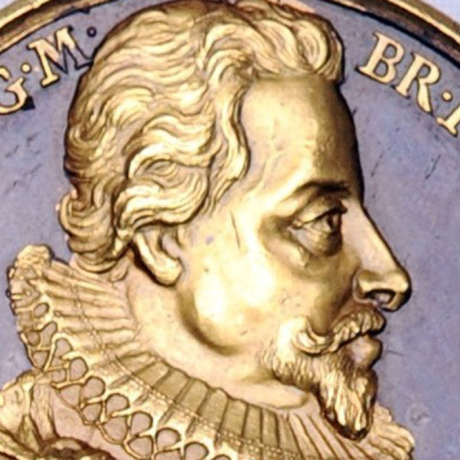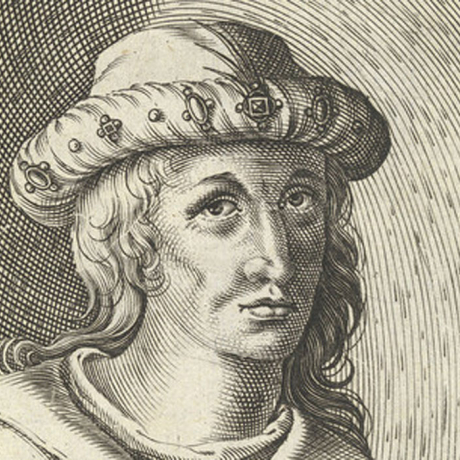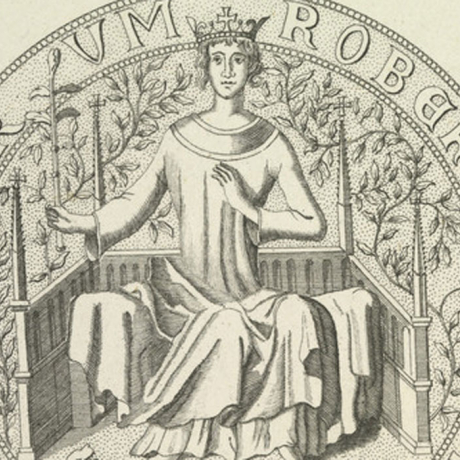He was less than a year old when he saw his mother for the last time, and thirteen months old when he was crowned King of Scots in Stirling after her forced abdication.
His childhood was constantly disturbed by the struggles of the nobles who vied for control of him. Given a demanding academic education by his tutor George Buchanan (who tried to teach him to hate his mother) and advised by four successive regents, he grew up to be a shrewd, wary intellectual who managed to reconcile the warring factions among his nobility with such success that he has been described as 'the most effective ruler Scotland ever had'.
Other opinions were more mixed; David Hume wrote that 'many virtues ... it must be owned, he was possessed of, but no one of them pure, or free from the contagion of the neighbouring vices,' whilst Henri IV of France called James 'the wisest fool in Christendom'.
James was a firm believer in the Divine Right of Kings and in the right of his bishops to run the Scottish Church; his response to Calvinist protests was 'No Bishop, No King'. His great ambition was to succeed Elizabeth I on the throne of England, and so he made only a formal protest when she signed his mother's death warrant in 1587.
Two years later, he married Anne of Denmark. Happy together at first they had three sons and four daughters, but gradually drifted apart.
On 24 March 1603 James achieved his lifelong ambition when Queen Elizabeth I died and he inherited the throne of England. He moved south immediately, and would have liked his two kingdoms to be completely united. However, Scotland retained its own parliament, established Church and legal and educational systems.
James enjoyed the pomp and circumstance of the English court, and returned to Scotland only once, in 1617. He liked to boast that he now ruled his northern kingdom with a stroke of his pen, but in his later years he lost something of his grasp of the Scottish situation.
When he forced through the 1618 General Assembly of the Church of Scotland his Five Articles of Perth, measures intended to bring the worship and government of the Church of Scotland into line with the Church of England, he met with strong opposition.
Realising that he had made an error of judgement, he did not enforce the Articles, and did not try again to introduce ecclesiastical innovations. He died on 27 March 1625.

